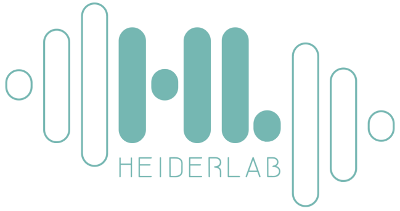CORona Drug InTEractions database
Identification of Atovaquone, Ouabain and Mebendazole as FDA Approved Drugs Tar-geting SARS-CoV-2
Ayman Farag, Ping Wang, Ian N. Boys, Jennifer L. Eitson, Maikke B. Ohlson, Wenchun Fan, Matthew B. McDougal, Mahmoud Ahmed, John W. Schoggins, Hesham Sadek
Abstract
The newly emerged coronavirus, SARS-CoV-2, and the resulting COVID-19 disease, has spread swiftly across the globe since its initial detection in December 2019. Given the heavy toll of this pandemic, therapeutic options for treatment are urgently needed. Here, we adopted a repositioning approach using in-silico molecular modeling to screen FDA-approved drugs with established safety profiles for potential inhibitory effects against SARS-CoV-2. We used structure-based drug design to screen more than 2000 FDA approved drugs against SARS-CoV-2 main protease enzyme (Mpro) substrate-binding pocket, focusing on two potential sites (central and terminal sites) to identify hits based on their binding energies, binding modes, interacting amino acids, and therapeutic indications. We additionally screened the top hits from both sites for potential covalent binding via nucleophilic thiol attack of Cys 145. High-scoring candidates were then screened for antiviral activity against infectious SARS-CoV-2 in a cell-based viral replication assay, and counterscreened for toxicity. Atovaquone, Mebendazole, and Ouabain exhibited antiviral efficacy with IC50s well within their respective therapeutic plasma concentrations (low nanomolar to low micromolar range), and limited toxic effects. Notably, all three were predicted in docking studies to covalently bind SARS-CoV-2 Mpro, underscoring the utility of this in-silico approach for identifying putative antivirals for repurposing. These results do not confirm efficacy in animal models or in humans, but rather serve as a starting point for testing the antiviral potential of select FDA-approved drugs, either individually or in combination.
Source: ChemRxiv
Related molecules
Related interactions
| Target | Drug | Type | Result |
|---|---|---|---|
| 3C-like protease | Atovaquone | ||
| 3C-like protease | Ouabain | ||
| 3C-like protease | Ouabain | ||
| 3C-like protease | Mebendazole |
| Target | Target affiliation | Drug | Type | Result |
|---|---|---|---|---|
| Target | Target affiliation | Drug | Type | Result |
| Name | Synonyms | Genes | Origin |
|---|---|---|---|
| Name | Synonyms | Genes | Origin |
| Name | Synonyms | PubChem | DrugBank | RCSB PDB | ATC |
|---|---|---|---|---|---|
| Name | Synonyms | PubChem | DrugBank | RCSB PDB | ATC |
| Title | Authors | DOI | Source | Article type | Date |
|---|---|---|---|---|---|
| Title | Authors | DOI | Source | Article type | Date |
| Title | Status | Phases | Start Date | Prim. Comp. Date | Comp. Date | First Post. Date |
|---|---|---|---|---|---|---|
| Title | Status | Phases | Start Date | Prim. Comp. Date | Comp. Date | First Post. Date |
CORDITE (CORona Drug InTEractions database) collects and aggregates data from PubMed, MedRxiv, BioRxiv, ChemRxiv and PMC for SARS-CoV-2. Its main focus is set on drug interactions either addressing viral proteins or human proteins that could be used to treat COVID. It collects and provides up-to-date information on computational predictions, in vitro, as well as in vivo study data.
The information provided is for research only and we cannot guarantee the correctness of the data.
Please contact dominik.heider@uni-muenster.de for further information.
Programmable access
There is an open API for access programmatically to the database. The API will print a JSON output:
- Interactions
https://cordite-api.uni-muenster.de/api.php?action=list&table=interaction
- Targets
https://cordite-api.uni-muenster.de/api.php?action=list&table=target
- Drugs
https://cordite-api.uni-muenster.de/api.php?action=list&table=drug
- Publications
https://cordite-api.uni-muenster.de/api.php?action=list&table=publication
- Clinical trials
https://cordite-api.uni-muenster.de/api.php?action=list&table=clinical_trial

